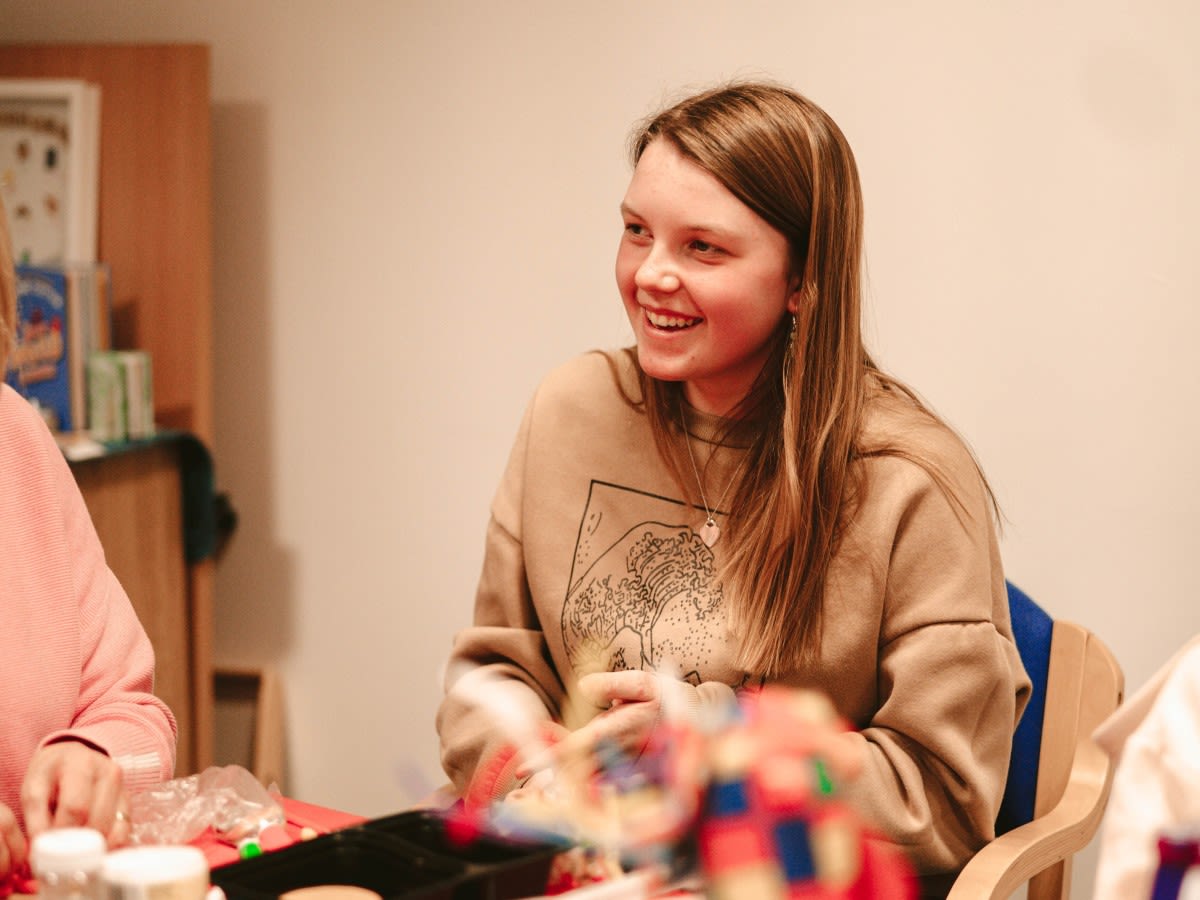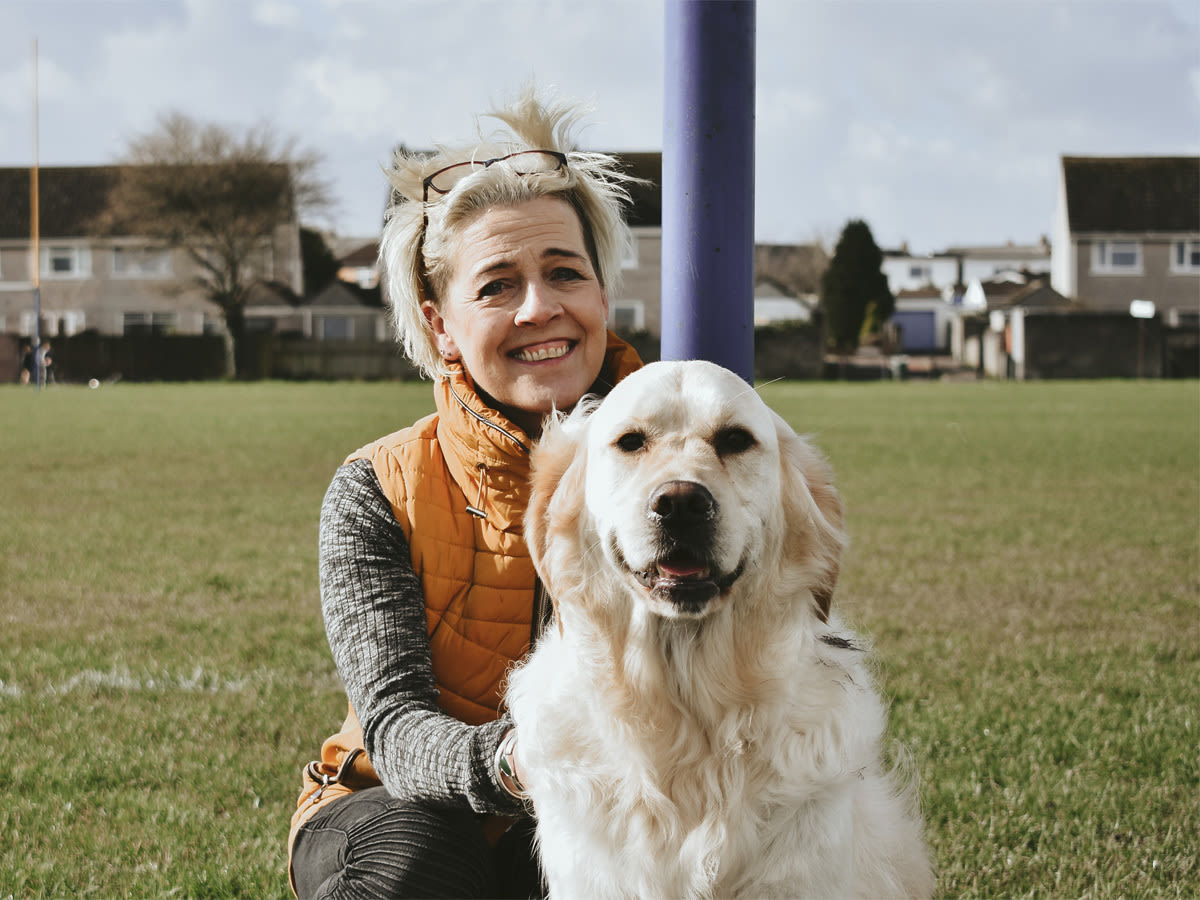Harbour Support Services has a Family Support Team that works across its six domestic abuse refuges in North-East England, to support the mothers and children living in the refuges. Within this team, two early years practitioners are funded by Comic Relief to support the women who are pregnant or with children under school age.
Harbour works with families and individuals who are affected by abuse from a partner, former partner, or other family members. It is estimated that each year nearly 2 million people in the UK suffer some form of domestic abuse[1] and around 130,000 children in England and Wales are living in homes where there is high-risk domestic abuse.[2]
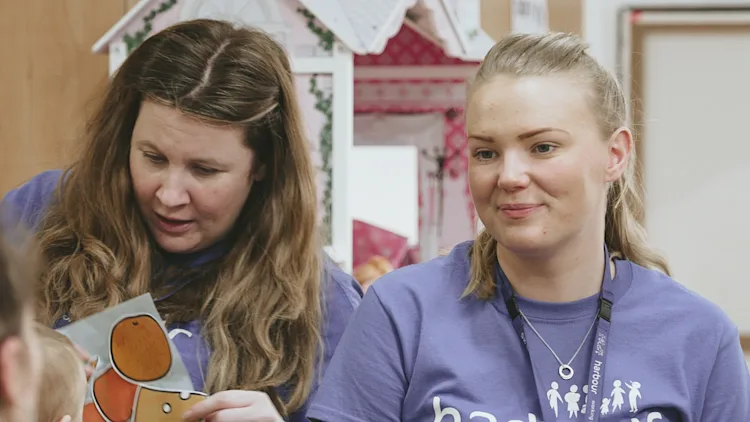
Kirsty and Katherine provide hands-on support to mums and their babies and young children. Kirsty explains:
“You imagine trying to work from home with children, but then doing that on top of being in a very abusive relationship and having the perpetrator controlling you and telling you exactly what you could do must have been so difficult. And that would have then had a massive effect on obviously her mental health, the children’s mental health, obviously trying to just, you know, get through day-to-day life knowing that you’re waking up every morning to have someone who’s controlling you, as well as being in isolation."
“They may not have been physically hurt”, Katherine adds, “but they’ve seen the aftermath, they’ve heard the arguments, they’ve maybe seen the police turning up with the ambulances, having that fear, being upstairs in bed not knowing what's going on downstairs”.
Katherine also explains how children can be negatively impacted by domestic abuse, even before they arrive in the world:
“Even before children are born, they can be affected by domestic abuse. In the womb, the shouting, the screaming, mum not even being able to go to appointments or to be able to get the support she needs from health visitors, from midwives and things like that.”
“When they’re born, mum might not be able to form a relationship with the baby because the partner might feel that they need- they want more attention, and they want the time with them. So that baby could just be left meeting their own needs.”
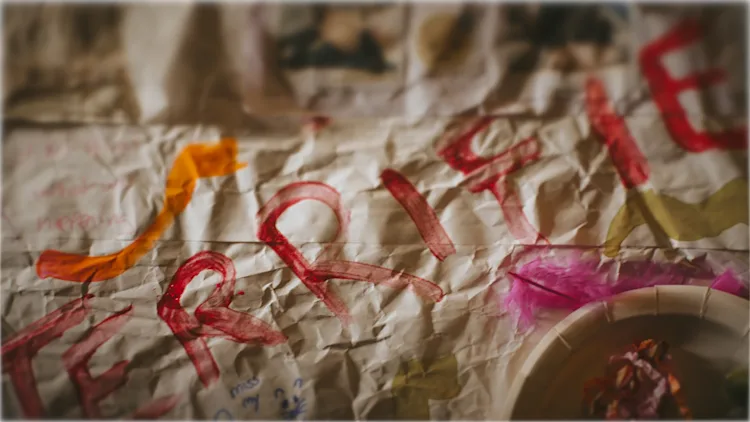
Kirsty and Katherine run messy play sessions and offer one-to-one support, which helps Mums to feel supported, learn about their child’s development and can repair and strengthen the relationship between child and parent. Katherine explains:
“Messy play is very much around sensory activities.”, Katherine explains, “So, it helps with children’s brain development, it helps with their coordination, so there's lots of things for the baby that will develop. But what we like to use it for is for mams to be able to join in that play with them because it means that the mams can take part in it, so they can put their hands in the spaghetti, they can help them do the paint, they can make the playdough.”
Kirsty adds, “it’s just about the children being able to use all of their physical skills. Being able to have the hand/eye coordination, you know, things like putting their feet in and noticing when they print their feet in paint and then they’re putting on the paper, noticing the difference in cause and effect.”
Women often come into the sessions feeling nervous but often, over time, their confidence grows and they are able to feel more relaxed. The practitioners help to teach Mums how to do similar activities when they’re not in the classroom. Katherine explains:
“We’re trying to do activities that they can learn in the playroom with us but then can be able to do them in their units as well, in their own flats and houses and things like that. And even beyond refuge. And we are seeing that we are having mams come back next week and going oh, I made that playdough, cos we give them the ingredients, we give them the recipes, the how to do.”
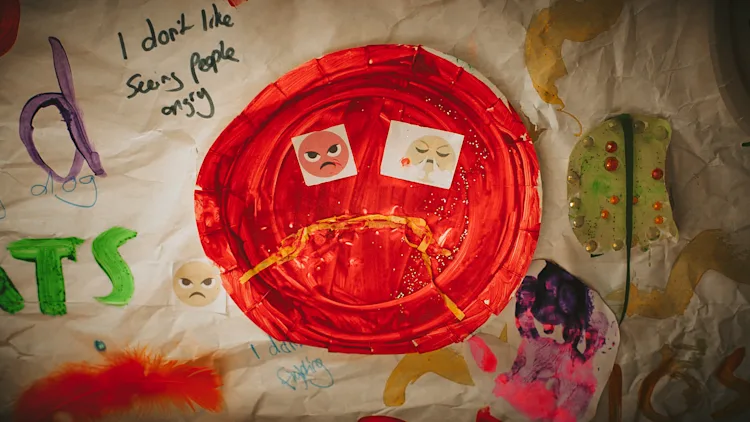
Beyond the sensory play activities, Harbour offers different types of support to the women and children coming to the refuge to enable them to recover from their experiences. Your donations to Comic Relief can support mums through a very difficult time, helping them make positive changes at a time when they lack support and stability and ensure these young children are not disadvantaged by the domestic abuse they have lived with.
“I want to see these families move on into their own home, with their children.”, Kirsty says, “And my main focus is for them to be happy and to feel safe. And I want them to be able to recognise the signs as they go into a new relationship, where the triggers will be and where there are signs that they think that actually there’s some flags here.”
Read more stories
Harbour Support - Read More
Meet Matilda
After her father died suddenly at home, Matilda, 13, turned to the Comic Relief-funded project Balloons in Devon to support her bereavement.
Meet Donation & Lindo
When Lindo was 14 and homeless, outreach worker Donation helped him turn his life around through Nairobi-based I Care's education program.
Meet Kate
After battling breast cancer while caring for her mother, Kate rebuilt her confidence through a rugby club with the Comic Relief-funded organisation School of Hard Knocks.
Meet Kate
After battling breast cancer while caring for her mother, Kate rebuilt her confidence through a rugby club with the Comic Relief-funded organisation School of Hard Knocks.
Meet Matilda
After her father died suddenly at home, Matilda, 13, turned to the Comic Relief-funded project Balloons in Devon to support her bereavement.
Meet Donation & Lindo
When Lindo was 14 and homeless, outreach worker Donation helped him turn his life around through Nairobi-based I Care's education program.
[1] ONS (2016), March 2015 Crime Survey for England and Wales (CSEW)
[2] SafeLives (2015), Getting it right first time: policy report.
